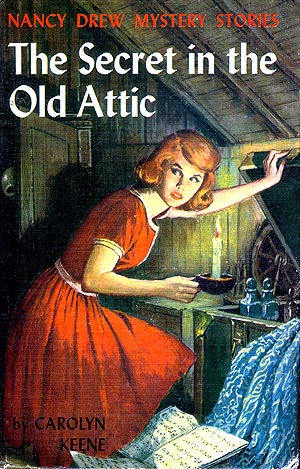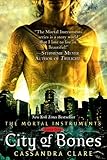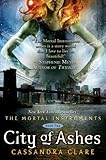Hope everyone had a great weekend! I went to Atlanta for the SEC Championship to support my LSU Tigers and had a fabulous time. I even was on TV in the crowd on EPSN Gameday, which was so much fun.
Now first before we get to our awesome guest blog, I wanted to let y'all know that I'm being interviewed over at August McLaughlin's blog and am talking about blogging, how I got my book deal, and where the idea of CRASH INTO YOU came from. I'd appreciate it if any of you would like to stop by and say hi. :)
Alright, on to the main event...today I have an awesome treat for you guys. Author and blogger Anne R. Allen is here to talk about how to give your first novel a fighting chance. If you haven't heard of Anne, where the heck have you been? Anne has one of the best blogs for writers out there. Even in my I-don't-have-time-to-read-blogs-like-I-used-to manic state, I still make sure to visit Anne's every week. She always has great nuggets of wisdom to impart.
And though I haven't had the chance to start reading her books yet, I have no doubt her novels are going to be as witty and fun as her blog is. (And her books are about writers so how could we not love that?) So without further ado, here's Anne...




Can a First Novel Find a Publisher? 10 Do’s and Don’tsto Increase your Chances
by Anne R. Allen
It’sa sad truth that most first novels never see print. Editors call them “practicenovels.”
Likeany other profession, writing requires a long learning process, and most of ushave to write two or three or six novels before we get the hang of it.
Butsome writers DO get top agents and Big Six publishing contracts with theirfirst books. I’ve gathered a few tips that might give you a better chance inthe marketplace.
Pleasenote: These aren’t “right and wrong” rules of writing. They are guidelines formaking your book easier to sell.
Mostof us don’t know when we’re starting out that certain things are going tored-flag us as amateurs, and/or turn out to be so difficult, there’s a muchsmaller chance of doing it right. I don’t recommend doing what I did—spendingten years on a saga that was so ambitious, even a pro would have had troublepulling it off.
Theseare a few tips I’ve learned the hard way:
1) DO writein a genre that’s being read. You may have always dreamedof writing a sweeping Micheneresque saga, a Zane Grey western, or astream-of-consciousness Kerouac ramble, but the sad truth is it’s not likely tofind an audience. Publishing has fashion cycles.
I’mnot telling you to follow every hot trend—what’s sizzling now will be over bythe time you’ve got the book finished—but do be aware of what might be a toughsell down the road.
Self-publishinghas opened up a way to reach readers who enjoy older genres, so trend-watchingisn’t as important if you’re not trying to market to New York, but even if youself-publish, you want to be aware of what most readers are going to be lookingfor.
Thetruth is that consumers tend to be sheep, so it’s good to know where the flocksare doing their munching right now. It helps to read book reviews and be awareof what’s out there. Visit your local bookstore and book blogs often and read,read, read.
2) DON’Twrite a novel that imitates a screenplay. If you’re under 65, youprobably have the TV screenplay format seared into your subconscious. Thismeans that when you’re writing a first novel, you have stuff to unlearn. In anovel, we don’t have to rely so heavily on what the characters say. In fact,they often don’t say what they’re feeling at all.
Areader perceives the action from INSIDE the head of the character/s rather thanviewing it from OUTSIDE. In a movie, we’re peeping toms, watching the actionthrough a camera lens; in a novel, we’re experiencing it. A novel is amindscape, not a landscape.
3) DOavoid an omniscient point of view or constant head-hopping. Choose fewerthan three point-of-view characters and you’ll save yourself a ton of grief.Omniscient and multiple points of view aren’t “wrong” but they’re consideredold-fashioned (at least in women’s fiction, mystery, and romance) and are toughto do well. They tend to slow and confuse the reader (and turn off agents,according to a lot of blogs.)
Themost common point of view in contemporary fiction is third person limited. Thatmeans you stay in the head of one character and see the world through his/hereyes for his section or chapter of the book. Even though you use “he/she” insteadof “I” the narrative allows you to see inside the head of that character, justlike first person.
Firstperson is probably most common in YA fiction, and is increasingly popular inadult fiction as well. First person is often good for a first-time novelist,because it keeps the writer from head-hopping or slipping into omniscientviewpoints.
4) DON’Tdepend on a prologue to initiate tension. There’s much debate aboutprologues out here in the blogosphere, but a vast majority of agents andeditors dislike them.
Myblogpost on prologues is here. Prologues aren’t wrong. But they maykeep you from getting traditionally published, so if you can put that informationin chapter one, do try that in your final edit.
5) DOmake sure your story has one protagonist. There has to be one maincharacter. Equality is ideal in the real world, but in narrative, one personhas to dominate. If another character walks in and tries to take over, tell heryou’ll put her in a short story later. Otherwise, change the focus of yournovel. (Not always a bad idea. Sometimes we start with the wrong point-of-viewcharacter.)
6) DON’Tchoose a protagonist who’s easily satisfied. Your main character hasto want something. Badly. Satisfied people make lovely companions, but assoon as your characters get what they want, your story is over.
7)DO make sure your novel has an antagonist. This isn’t necessarily amustache-twirling villain. It can be a situation, a disease, or societyitself—anything strong enough to thwart your character’s goals. Make sure yourantagonist is powerful enough to provide conflict for the whole narrative—notjust each episode. The wonderful blogger Kristen Lamb has a whole
serieson antagonists (she calls them the Big Boss Troublemakers.) It’s amust-read for anybody who has trouble with episodic storytelling (which I didfor years.)
8) DON’Tput something in a novel just “because that’s the way it really happened.” Evenif your story is based on your own experiences, remember real life ismostly boring. That’s why we read fiction.
9)DO activate your inner sadist. Never let your characters get what theyneed. Throw as many obstacles into their path as possible. Hurt them. Maimthem. Give them cruel parents and girlfriends who are preparing to kill themfor alien lizard food. It’s OK. You’ll solve their problems in the end. Thenwon’t you feel good?
10)DON’T rely on flashbacks. Overuse of flashbacks is the mark of a newbie.They stop the forward momentum of your story and make us feel as if we’reslipping backward. Again to quote
KristenLamb, “this makes the reader feel as if she is trapped in the car with ateenager learning to drive a stick-shift.”
Irepeat—none of these “don’ts” are
wrong. But they will stand in yourway, especially if you’re going the traditional publishing route. As the late,great Miss Snark used to say: “why shoot yourself in the font?”
(from Roni): Any first novel war stories anyone wants to share? (I know my first novel was dead in the water and is now hanging out with the monsters under my bed.) Have you seen any of these don'ts creeping into your book? Any first novel success stories?
********

Anne R. Allen is the author of five comic mysteries debuting in 2011 with two publishers: Popcorn Press and Mark Williams international Digital Publishing. FOOD OF LOVE (September 2011) THE GATSBY GAME (October 2011) GHOSTWRITERS IN THE SKY (October 2011) and SHERWOOD, LTD (December 2011) and THE BEST REVENGE (December 2011) She is also working on a self-help guide for writers with PAY IT FORWARD author Catherine Ryan Hyde. Anne has a popular blog for writers at
http://annerallen.blogspot.com, where she blogs with
NYT bestselling author, Ruth Harris.
Her first Camilla Randall mystery (but not her first novel, alas) GHOSTWRITERSIN THE SKY debuted in ebook on October 31st with MWiDP and willbe available in paper from Popcorn Press in January. It’s murder and mayhem ata writer’s conference in the “Sideways” wine-and-cattle country north of SantaBarbara, CA. It’s full of fun insider jokes for writers: there’s the bogusagent who’s really a blackmailer, the pompous poet who hasn’t written in years,and the romance writer who tries to live her own fantasies. Plus a hard-riding,straight-shooting, cross-dressing dominatrix named Marva who turns out to be thesanest person around.

"Hot and romantic, with an edge of suspense that will keep you entertained.” --Shayla Black, New York Times Bestselling author of SURRENDER TO ME CRASH INTO YOU is now available for pre-order! Read an excerpt here.
All content copyright of the author. Please ask permission before re-printing or re-posting. Fair use quotations and links do no require prior consent of the author. ©Roni Loren 2009-2011 |
Copyright Statement|










